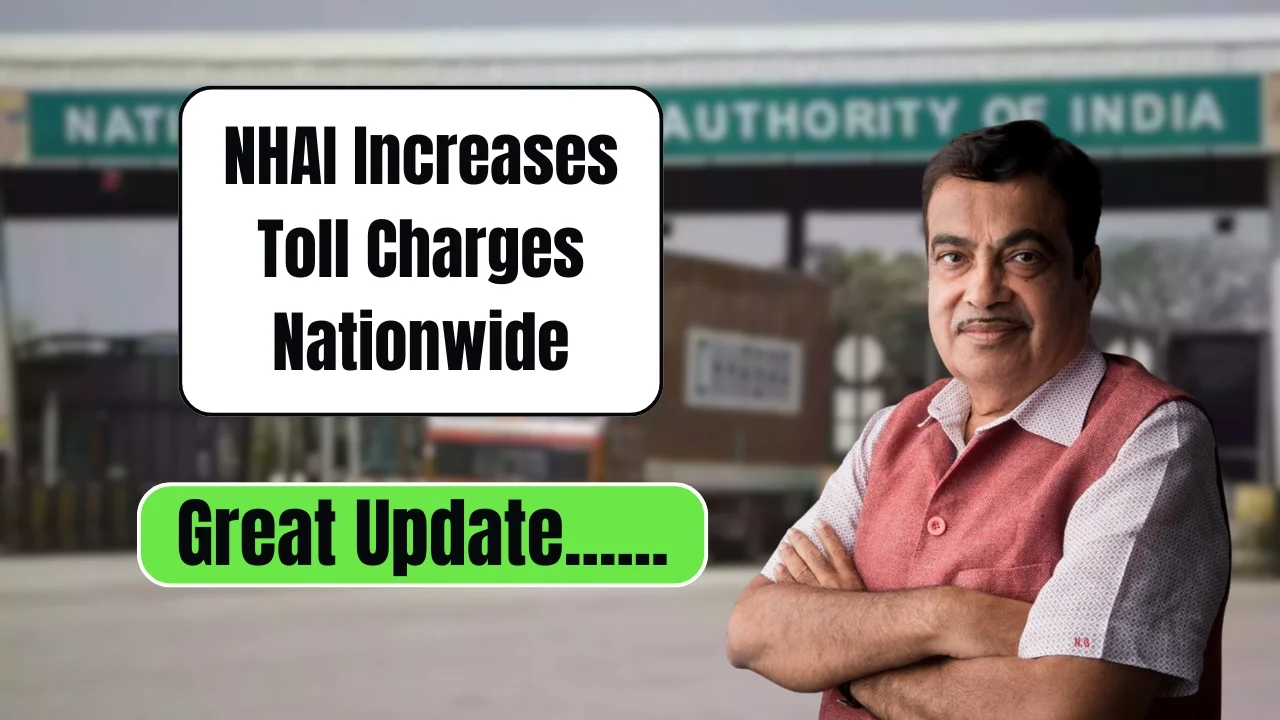The National Highways Authority of India (NHAI) has increased toll charges across national highways and expressways starting April 1, 2025. The hike, ranging between 4-5%, is part of the annual adjustment based on inflation. This change impacts 855 toll plazas, including major routes like the Delhi-Meerut Expressway and Delhi-Jaipur Highway.
Commuters traveling on these roads will now pay higher toll fees, affecting both personal and commercial vehicle owners. The decision is aimed at covering road maintenance costs and improving infrastructure, but it also adds to daily commuting expenses.
Revised Toll Charges on Major Highways
The new toll rates have led to an increase in charges across several highways.
- On the Delhi-Meerut Expressway, the toll for cars has gone up from ₹165 to ₹170, with even higher rates for commercial vehicles.
- On the Delhi-Jaipur Highway, the monthly pass for private cars has increased from ₹930 to ₹950, while commercial vehicle passes now cost ₹1,255.
- At Thiruvallam toll plaza, car users now pay ₹155 for a one-way trip, up from ₹150. The cost of a monthly pass has risen to ₹5,100.
Commuter Reactions
Many daily commuters have expressed frustration over the price hike. Regular travelers, especially those who cross multiple toll plazas daily, are feeling the financial pressure. Even small increases add up quickly, making travel more expensive over time.
People with fixed incomes or lower wages are particularly affected, as the extra costs make commuting harder. Some drivers have said they may consider alternative routes or public transport if toll rates continue to rise.
FASTag Rule Updates
Along with the toll hike, NHAI has implemented new FASTag rules to improve toll payment efficiency. The updated guidelines include:
- Transactions will be rejected if the FASTag is inactive for 60 minutes before crossing the toll and not recharged within 10 minutes after passing.
- Blacklisted FASTags will result in double toll charges if the user tries to recharge them at the plaza.
- Payments delayed beyond 15 minutes will attract additional penalties.
These new rules are meant to reduce congestion and ensure smooth toll collection, but they also create challenges for users who may forget to recharge their FASTags on time.
Why Did NHAI Increase Toll Charges?
NHAI officials say the annual toll hike is necessary to fund road maintenance, repair damaged stretches, and support new highway projects. They argue that better roads benefit everyone, making travel faster and safer.
However, for regular commuters, the increased cost is an added burden. Many feel that higher tolls should come with visible improvements in road conditions and facilities.
Impact on Daily Travel
The toll hike means daily and monthly travel costs will increase, especially for those who rely on highways for work or essential activities. Business owners using commercial vehicles will also face higher logistics expenses, which could lead to increased prices for goods and services.
Some commuters may reduce their highway usage or opt for public transport if the tolls become too expensive. Others might look for alternative routes to avoid paying extra.
Looking Ahead
With toll charges rising every year, many commuters are hoping for government intervention to keep prices reasonable. Some experts suggest introducing discounts for frequent travelers or improving public transport options to provide relief.
For now, NHAI remains firm on the toll hike, and drivers will have to adjust to the new rates. Commuters are advised to keep their FASTags active to avoid penalties and plan for increased travel costs in the coming months.
